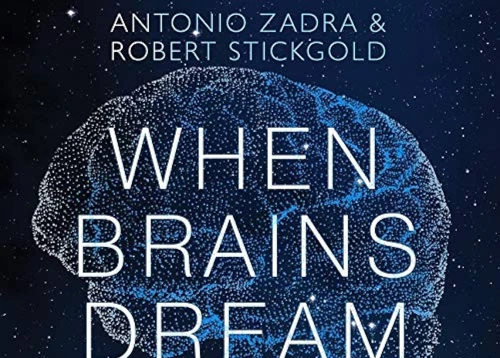Have you ever wondered about the mysterious link between insomnia and prophetic dreams? It’s a fascinating topic that has captivated the imagination of many throughout history. Insomnia, the inability to sleep, has long been associated with a range of sleep disturbances, but could it also have a connection to the realm of dreams? On the other hand, prophetic dreams have been revered in various cultures for their ability to provide insight into the future. In this article, we will delve into the intriguing relationship between insomnia and prophetic dreams, exploring how insomnia affects dream experiences, how it may facilitate prophetic dreams, and the scientific insights and findings surrounding this phenomenon. Additionally, we will provide tips for enhancing prophetic dreams while dealing with the side effects of insomnia. So, let’s unlock the secrets and unravel the mysteries of this captivating correlation.
What is Insomnia?
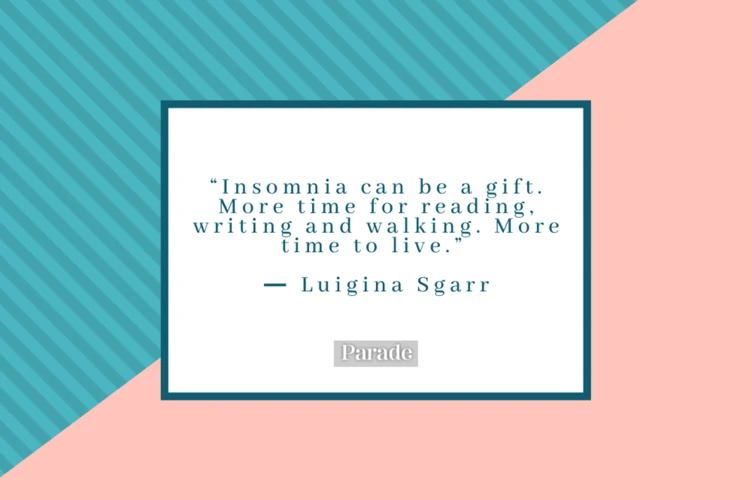
Insomnia is a sleep disorder characterized by persistent difficulty falling asleep, staying asleep, or experiencing non-restorative sleep. It is a condition that affects millions of people worldwide and can have a significant impact on their overall well-being. Insomnia can be caused by various factors, including stress, anxiety, medications, medical conditions, or lifestyle choices. Individuals with insomnia often find themselves lying awake in bed, unable to achieve the deep, restful sleep they desperately need. This lack of sufficient sleep can lead to a range of negative effects, such as daytime fatigue, irritability, difficulty concentrating, and impaired cognitive function. Insomnia can also disrupt the normal sleep cycle and result in frequent awakenings throughout the night, further exacerbating the sleep deprivation. It is essential to address and manage insomnia effectively to improve sleep quality and prevent long-term health consequences. You can learn more about the relationship between insomnia and lucid dreaming by reading our article on Understanding Insomnia in Lucid Dreaming. Additionally, exploring how insomnia can impact dream content and symbolism can provide insights into the complex relationship between sleep disturbances and dreams. To learn more, check out our article on Insomnia and Dream Disturbances.
Understanding Prophetic Dreams

Prophetic dreams are a fascinating phenomenon that has intrigued humanity for centuries. These dreams are characterized by their ability to provide glimpses into the future or offer insights into significant events or situations. People who experience prophetic dreams often report a sense of heightened clarity and vividness in their dream experiences. While some skeptics dismiss these dreams as mere coincidences or subjective interpretations, many individuals believe in their profound meaning and potential predictive power. Prophetic dreams can manifest in different ways, including symbolic imagery, vivid scenarios, or even direct messages. These dreams can offer guidance, warnings, or glimpses of future possibilities. They have been credited with aiding decision-making, providing comfort during difficult times, and even playing a role in historical events. The relationship between insomnia and prophetic dreams is an intriguing one. Insomnia, as discussed earlier, can cause disturbances in sleep patterns and dream experiences. To learn more about how insomnia can affect dream content and symbolism, refer to our article on Insomnia and Dream Disturbances.
The Influence of Insomnia on Dreams
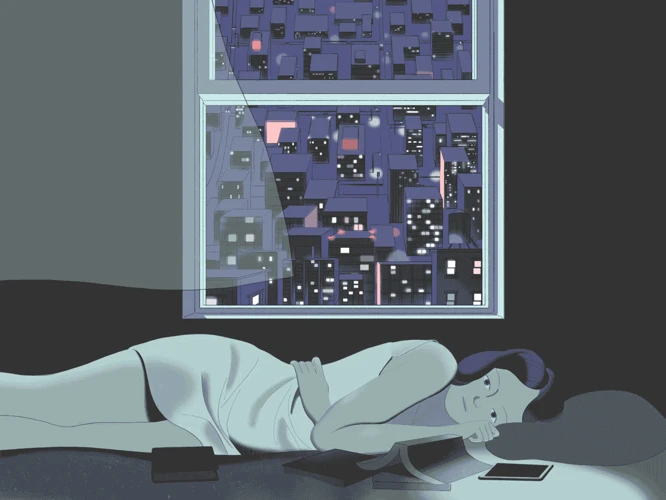
Insomnia can significantly influence the nature and characteristics of dreams. When individuals struggle with insomnia, it can lead to various changes and intensifications in their dream experiences. One of the primary influences of insomnia on dreams is the increased dream intensity. Sleep deprivation caused by insomnia leads to a buildup of sleep pressure, which can result in more vivid and emotionally charged dreams. Additionally, insomnia often disrupts the normal sleep cycle, causing individuals to spend more time in REM sleep, the stage of sleep associated with dreaming. This increased time in REM sleep can lead to enhanced dream recall, another influence of insomnia on dreams. Individuals with insomnia may find themselves waking up frequently throughout the night, allowing them to remember more details from their dreams. This heightened awareness of dream content can also lead to a greater sensitivity and interpretation of dream symbols and motifs. You can learn more about how insomnia affects dream disturbances and symbolism by reading our article on Insomnia and Dream Disturbances.
1. Increased Dream Intensity
Increased Dream Intensity is one of the fascinating ways in which insomnia can influence dream experiences. When individuals with insomnia finally fall asleep after a period of sleeplessness, their dreams can become remarkably vivid and intense. This heightened intensity may be attributed to the accumulation of mental and emotional tension throughout the waking hours, which then manifests in the dream state. Insomniacs often describe their dreams as more vivid, colorful, and emotionally charged compared to those experienced during restful nights of sleep. The heightened dream intensity can make the dream scenarios feel more lifelike and realistic, blurring the line between fantasy and reality. This intensity could be a result of the brain’s compensatory mechanism to process the accumulated emotions and thoughts that were unable to be fully expressed during the wakeful state. The increased dream intensity in individuals with insomnia adds a layer of complexity to their dream experiences, making them more memorable and thought-provoking. It is important to note that increased dream intensity is not exclusive to prophetic dreams, but it can contribute to a more profound dream experience overall. The intensified dreams can serve as a valuable source of insight and self-reflection for individuals with insomnia, enabling them to explore and process their emotions and thoughts on a deeper level.
2. Enhanced Dream Recall
Insomnia can have a significant impact on an individual’s ability to recall their dreams. When sleep is fragmented or disrupted, dream recall can become more pronounced. This is because individuals with insomnia tend to wake up more frequently during the night, which increases the likelihood of remembering their dreams upon awakening. The interrupted sleep pattern can create a scenario where individuals wake up directly from a dream state, making it easier to retain and recall the content of their dreams. Enhanced dream recall can provide a unique opportunity for those experiencing insomnia to gain insight into their dream world and potentially tap into the realm of prophetic dreams.
One method to enhance dream recall is to keep a dream journal or diary. By documenting dreams immediately upon waking, individuals with insomnia can train their minds to retain dream memories more effectively. Writing down vivid details, emotions, and symbols experienced during dreams can help in recognizing patterns or recurring themes that may have prophetic implications.
Another technique is to place a notepad and pen next to the bed to quickly jot down any remembered dreams throughout the night. This practice helps capture fleeting dream fragments that might fade from memory if not recorded promptly. Reviewing the dream journal periodically can reveal connections between dreams and real-life events or assist in identifying potential prophetic elements.
In addition to written documentation, technology can also aid in enhancing dream recall. Various smartphone applications are available that allow individuals to record and analyze their dreams. These apps often include features such as voice recording, image and symbol recognition, and dream interpretation tools. Using such tools can further expand the understanding and exploration of dreams, including those with potential prophetic qualities.
It is important to note that while insomnia can enhance dream recall, it is still crucial for individuals to strive for a good night’s sleep and manage their sleep disorder effectively. Chronic insomnia can have adverse effects on overall health and well-being. Consulting with a healthcare professional, practicing good sleep hygiene, and exploring effective techniques for managing insomnia can help strike a balance between improved dream recall and achieving restful, restorative sleep.
3. Heightened Awareness of Symbols
During episodes of insomnia, individuals often experience a heightened awareness of symbols within their dreams. This heightened state of consciousness in the dream state can lead to a deeper understanding and interpretation of the symbolic elements present in their dreams. Symbols in dreams hold significant meaning and can provide insights into one’s emotions, desires, and hidden thoughts. With insomnia, the mind is in a hyperaroused state, making individuals more attuned to the intricate details and symbolism embedded within their dreams. For example, a dream about a snake may not merely represent a literal snake but could symbolize hidden fears or repressed desires. The individual with insomnia may be more likely to recognize these symbols and analyze their personal significance, leading to a richer understanding of their dream content. This heightened awareness of symbols can contribute to the potential prophetic nature of dreams experienced during insomnia, as individuals may be more receptive to the subtle messages and warnings conveyed by the symbolic imagery. To delve deeper into the fascinating topic of dream symbolism and its relationship with insomnia, consider reading our article on Insomnia and Dream Content Symbolism.
Insomnia as a Facilitator of Prophetic Dreams

Insomnia, while commonly associated with sleep disturbances and difficulties, can also serve as a facilitator of prophetic dreams. When individuals experience insomnia, their sleep patterns and brain activity can be altered in ways that contribute to more vivid and intense dreams. Firstly, insomnia can lead to altered brainwave activity, specifically an increase in theta and alpha waves, which are associated with creative and intuitive states of mind. This altered brain activity can enhance the individual’s receptivity to intuitive insights and symbolic messages within their dreams. Secondly, insomnia reduces external distractions, allowing individuals to focus more deeply on their internal experiences and dream content. This intensified focus can help individuals recognize and interpret significant symbols or messages within their dreams. Finally, insomnia can distort the perception of time, making dreams feel longer and more immersive. This distortion of time can create a heightened sense of awareness and attention to detail, enabling individuals to have more profound and prophetic dream experiences. While insomnia may initially seem like an obstacle to restful sleep, it can surprisingly enhance the potential for prophetic dreams to occur.
1. Altered Brainwave Activity
Altered Brainwave Activity
Insomnia can have a profound impact on brainwave activity during sleep, which may contribute to the occurrence of prophetic dreams. Brainwaves are electrical impulses generated by the brain that can be measured using electroencephalography (EEG). Different stages of sleep are associated with specific brainwave patterns. When experiencing insomnia, individuals often have disrupted sleep patterns, resulting in altered brainwave activity during the times they do manage to sleep.
During normal sleep, there are several stages, including NREM (non-rapid eye movement) sleep and REM (rapid eye movement) sleep. NREM sleep is divided into three stages: N1, N2, and N3, with N3 being the deepest stage of sleep. During NREM sleep, brainwaves transition from higher frequency beta and alpha waves to slower frequency theta waves (4-7Hz) and delta waves (0.5-4Hz). These slower brainwave frequencies are associated with the deep, restorative sleep necessary for physical and mental rejuvenation.
In contrast, REM sleep is characterized by a higher frequency of brainwave activity similar to wakefulness. This stage is when most dreaming occurs. During REM sleep, the brain exhibits fast, low-amplitude beta and alpha waves, similar to wakefulness. This brainwave activity is thought to be associated with increased neural activation and vivid dreaming experiences.
When insomnia disrupts the normal sleep cycle, the brainwave activity can become irregular and unpredictable. Some studies have shown that individuals with insomnia exhibit increased beta brainwave activity during NREM sleep, resembling the brainwave patterns of wakefulness. This heightened brainwave activity may contribute to increased neural activity during sleep and potentially influence dream experiences, including the occurrence of prophetic dreams.
It is important to note that altered brainwave activity alone may not directly cause prophetic dreams, but it can create an environment that is more conducive to heightened dream experiences and increased dream recall. Other factors such as dream content, personal beliefs, and individual susceptibility to prophetic experiences also play a role. Understanding the relationship between altered brainwave activity and dream experiences is an ongoing area of research, and further studies are needed to gain a deeper understanding of this complex phenomenon.
2. Reduction in Outer Distractions
When it comes to insomnia’s role in facilitating prophetic dreams, one significant factor is the reduction in outer distractions. Insomnia often occurs during the late night or early morning hours when the world around us is quiet and still. This silence and lack of external stimulation create an environment conducive to introspection and deep contemplation. With fewer distractions from the outside world, our minds are more likely to wander and explore the depths of our subconscious. This heightened state of inner focus allows for a greater connection to our dreams and the symbols that may arise within them. As we become more attuned to our internal experiences, we may find that our dreams become clearer, more vivid, and more profound. The absence of external disturbances during periods of insomnia creates a unique opportunity for our minds to delve into the realm of prophetic dreams. This reduction in outer distractions can be seen as a gateway to unlocking the potential of our dream world and accessing insights and revelations that may be hidden during our waking hours.
3. Altered Perception of Time
Altered Perception of Time is another fascinating aspect of how insomnia can influence prophetic dreams. When experiencing insomnia, individuals may often feel as if time is either moving too slowly or too quickly. This altered perception of time can extend into the dream state, creating a unique temporal experience. In dreams, time can become distorted, fragmented, or even non-linear. This means that dreams may compress or stretch time, leading to a sense of events happening rapidly or in slow motion. This distortion of time can enhance the intensity and vividness of prophetic dreams, as the dreamer’s consciousness becomes more attuned to the subtle nuances and details that are often overlooked in waking life. The altered perception of time in prophetic dreams can provide a deeper understanding of the symbolic messages and insights that these dreams may hold. It is an extraordinary phenomenon that intertwines the elusive nature of time and the enigmatic realm of dreams, further highlighting the intricate connection between insomnia and prophetic dreams.
Scientific Insights and Findings
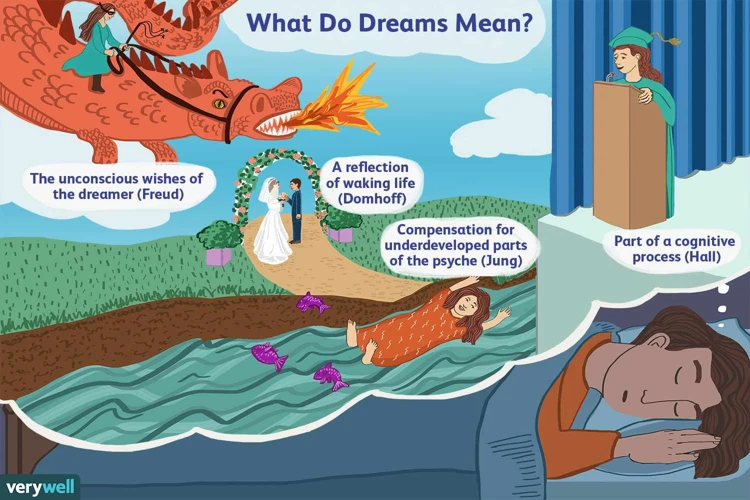
Scientific research has provided valuable insights into the connection between insomnia and prophetic dreams. Several studies have explored the effects of sleep deprivation on dream characteristics and content. Sleep deprivation studies have shown that prolonged wakefulness can lead to increased dream intensity and vividness. This heightened dream experience may contribute to the perception of prophetic dreams. Neurological perspectives suggest that insomnia can alter brainwave activity, shifting towards a more creative and imaginative state that enhances dream recall and the potential for prophetic dreams. Psychodynamic interpretations propose that insomnia creates a reduction in external distractions and a stronger focus on internal processes, allowing individuals to tap into their unconscious mind and extract meaningful insights from their dreams. These scientific findings offer intriguing explanations for the relationship between insomnia and prophetic dreams, shedding light on the inner workings of the human mind during periods of sleep disturbance.
1. Sleep Deprivation Studies
Sleep deprivation studies have shed light on the fascinating connection between insomnia and prophetic dreams. Researchers have conducted experiments to explore the effects of sleep deprivation on dream experiences and the potential for prophetic content. In these studies, participants were subjected to varying degrees of sleep deprivation, ranging from partial to total deprivation. The results revealed interesting findings.
One prominent observation from sleep deprivation studies is that prolonged wakefulness can significantly impact dream intensity. When individuals are deprived of sleep, their dreams become more vivid, emotionally charged, and surreal. The lack of restorative sleep appears to heighten brain activity during the dream state, leading to intensified dream experiences. This increased intensity may contribute to the perception of dreams as prophetic or significant.
Sleep deprivation studies have also revealed that individuals tend to have enhanced dream recall when they are sleep deprived. The fragmented and disrupted sleep patterns associated with insomnia may result in frequent awakenings throughout the night. Each awakening presents an opportunity to remember and recall dreams, leading to a more comprehensive recollection of dream content. This enhanced dream recall can provide individuals with valuable insights and potential prophetic elements within their dreams.
It is important to note that sleep deprivation studies serve as a valuable tool for understanding the effects of insomnia on dream experiences. While these studies can provide insights into the relationship between insomnia and prophetic dreams, they are just a piece of the puzzle. To gain a comprehensive understanding, it is crucial to consider other perspectives, such as neurological and psychodynamic interpretations.
2. Neurological Perspectives
Neurological perspectives provide valuable insights into the relationship between insomnia and prophetic dreams. Research has shown that insomnia can affect brain activity and, in turn, influence dream experiences. Here are some key neurological perspectives to consider:
1. Increased Brain Activation: Studies have found that individuals with insomnia often exhibit heightened brain activity, particularly in regions associated with emotional processing and cognitive control. This increased activation may contribute to more intense and vivid dreams, including prophetic elements.
2. Disrupted Sleep Architecture: Insomnia disrupts the normal sleep architecture, which consists of different stages, including REM (rapid eye movement) sleep. REM sleep is known for its association with dreaming. Individuals with insomnia may experience alterations in REM sleep, leading to changes in dream patterns and content.
3. Hyperarousal: Insomnia is often characterized by a state of hyperarousal, where individuals have increased alertness and difficulty relaxing. This hyperarousal state can spill over into dream experiences, causing dreams to become more intense, vivid, and potentially prophetic.
4. Altered Neurotransmitter Function: Neurotransmitters, such as serotonin and dopamine, play essential roles in regulating sleep and dream processes. Insomnia can disrupt the delicate balance of these neurotransmitters, affecting the dream content and potentially allowing for prophetic elements to emerge.
Understanding these neurological perspectives enhances our understanding of how insomnia influences dream experiences and the potential for prophetic dreams. However, it is essential to recognize that further research is still needed to fully elucidate the complex interplay between insomnia, brain function, and dream phenomena.
3. Psychodynamic Interpretations
Psychodynamic interpretations offer another perspective on the relationship between insomnia and prophetic dreams. Developed by Sigmund Freud, this psychological approach suggests that dreams are a reflection of our unconscious desires, conflicts, and emotions. In the context of insomnia, psychodynamic interpretations propose that the inability to sleep may result in an increased awareness of repressed thoughts and unresolved issues, which then manifest in dreams.
According to this theory, when individuals with insomnia finally fall asleep, their dreams become a means of expressing and processing these inner conflicts. The heightened awareness and focus brought on by the sleep deprivation may allow access to deeper layers of the subconscious mind, allowing for more vivid and symbolic dream experiences.
These psychodynamic interpretations propose that prophetic dreams experienced during insomnia may be a manifestation of the unconscious mind attempting to provide insight, guidance, or resolution to the individual. The symbols and events in these dreams could represent hidden fears, desires, or unresolved issues that the dreamer may need to confront and address.
It is important to note that psychodynamic interpretations are based on subjective analysis and rely heavily on individual interpretations of dream content. The meaning and significance of dreams can vary greatly from person to person, and it is essential to approach such interpretations with an open mind and personal reflection.
Psychodynamic interpretations contribute to our understanding of the relationship between insomnia and prophetic dreams by highlighting the potential psychological processes at play. They suggest that insomnia may lead to a heightened introspection and exploration of the subconscious mind through dreams, allowing for a deeper understanding of ourselves and our emotions.
Tips for Enhancing Prophetic Dreams with Insomnia
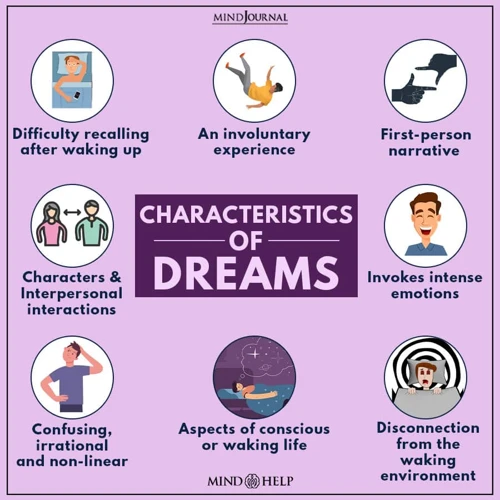
If you’re experiencing insomnia and are intrigued by the potential for prophetic dreams, there are several tips and techniques you can try to enhance your dream experiences. Maintaining a sleep journal can help you track patterns, including the occurrence of prophetic dreams. Record any significant dreams or symbols you come across, as this can provide valuable insights. Creating a relaxing bedtime routine is also crucial. This can involve practices such as taking a warm bath, reading a book, or listening to calming music to prepare your mind and body for sleep. Exploring meditation and mindfulness techniques can help calm the mind and increase awareness during both waking and dreaming hours. Engaging in these practices before sleep can promote a state of relaxation and receptivity to prophetic dreams. Remember, though insomnia can be challenging, it may also offer unique opportunities for exploring and harnessing the power of your dreams.
1. Maintain a Sleep Journal
Maintaining a sleep journal can be highly beneficial for enhancing your prophetic dreams while dealing with insomnia. Keeping a record of your sleep patterns, dreams, and any related experiences can provide valuable insights into the relationship between your sleep quality and dream content. Start by recording the time you go to bed, the time you wake up, and any notable factors that may have influenced your sleep, such as caffeine intake or stressful events. Be sure to jot down your dreams immediately upon waking, as they are fresh in your memory. Include details about the people, places, emotions, and symbols that appeared in your dreams. Over time, you may start to notice patterns or recurring themes in your dreams that can offer clues or messages about future events. Additionally, tracking your sleep patterns and the quality of your sleep can help you identify any potential triggers or factors that may be impacting your ability to sleep well. By maintaining a sleep journal, you can gain a deeper understanding of the connection between your insomnia, dreams, and prophetic experiences, allowing you to make adjustments and optimize your sleep environment to enhance the likelihood of meaningful dreams.
2. Create a Relaxing Bedtime Routine
Creating a relaxing bedtime routine can be an effective way to promote better sleep and enhance your chances of experiencing prophetic dreams, especially if you are dealing with insomnia. A bedtime routine signals to your body and mind that it’s time to wind down and prepare for sleep. Here are some strategies you can incorporate into your routine:
1. Establish a Consistent Sleep Schedule: Set a regular sleep schedule by going to bed and waking up at the same time every day, even on weekends. This helps regulate your body’s internal clock and promotes better sleep quality.
2. Limit Electronic Devices: Electronics emit blue light, which can interfere with the production of melatonin, a hormone that regulates sleep. Avoid using electronic devices, such as smartphones, tablets, and laptops, at least an hour before bed.
3. Create a Peaceful Environment: Make your bedroom a tranquil space by keeping it dark, cool, and quiet. Consider using blackout curtains, earplugs, or a white noise machine to block out any disruptive stimuli.
4. Engage in Relaxation Techniques: Incorporate relaxation techniques, such as deep breathing exercises, meditation, or gentle stretching, into your bedtime routine. These activities can help calm the mind and body, promoting a sense of relaxation before sleep.
5. Avoid Stimulants: Limit your intake of caffeine, nicotine, and alcohol, as these substances can interfere with sleep patterns and contribute to insomnia. Instead, opt for herbal teas or warm milk, which have soothing properties.
6. Practice Good Sleep Hygiene: Adopting good sleep hygiene habits can contribute to better sleep. This includes avoiding heavy meals close to bedtime, exercising regularly, and creating a comfortable and supportive sleep environment.
By incorporating these strategies into your bedtime routine, you can create a conducive environment for quality sleep and increase the likelihood of having prophetic dreams. Remember, consistency is key, so stick to your routine and allow your body and mind to unwind before drifting off into a restful slumber.
3. Explore Meditation and Mindfulness
Meditation and mindfulness practices can be valuable tools for individuals experiencing insomnia and seeking to enhance their prophetic dreams. By cultivating a calm and focused mind, meditation and mindfulness can help alleviate the symptoms of insomnia and promote a deeper state of relaxation.
One way to incorporate meditation into your bedtime routine is by practicing guided meditation. You can find various meditation apps and websites that offer guided meditations specifically designed to promote sleep and relaxation. These guided meditations often incorporate soothing music, breathing techniques, and visualization exercises to help calm the mind and prepare it for sleep.
Mindfulness, on the other hand, involves being fully present and aware of the present moment. By practicing mindfulness, you can develop a heightened state of awareness that can positively impact your dream experiences. Before going to bed, take a few moments to engage in mindfulness exercises such as body scans or mindful breathing. This can help you become more attuned to your body and sensations, allowing for a more profound connection with your dreams.
Additionally, incorporating mindfulness throughout your daily life can help reduce stress and anxiety, which are common triggers for insomnia. By learning to be present in each moment and letting go of worries and distractions, you create a mental environment that is conducive to restful sleep and vivid dreams.
Remember, exploring meditation and mindfulness techniques requires patience and consistency. It may take time to develop the skills necessary for deep relaxation and enhanced dream experiences. So, be gentle with yourself and embrace the journey towards better sleep and more profound dream connections.
Discover more tips for enhancing prophetic dreams with insomnia in our comprehensive guide.
Dealing with the Side Effects
When experiencing insomnia, it is crucial to address and manage the side effects that can arise from this sleep disorder. Here are some strategies for dealing with the side effects of insomnia:
1. Practice good sleep hygiene: Establishing a consistent sleep routine can help regulate your body’s sleep-wake cycle. Set a regular bedtime and wake-up time, and create a sleep-friendly environment by keeping your bedroom dark, quiet, and cool.
2. Limit caffeine and stimulant intake: Avoid consuming caffeine, nicotine, and other stimulants close to bedtime, as they can interfere with sleep quality and exacerbate insomnia symptoms.
3. Manage stress: Find healthy ways to cope with stress, such as engaging in relaxation techniques like deep breathing exercises, meditation, or yoga. Managing stress can help reduce anxiety and promote better sleep.
4. Avoid napping: While it may be tempting to take a nap during the day to compensate for lack of sleep, it can disrupt your sleep schedule further. Try to stay awake during the day and save your sleep for nighttime.
5. Seek support: If your insomnia persists or worsens, consider reaching out to a healthcare professional or sleep specialist who can provide guidance and recommend appropriate treatment options.
6. Cognitive-behavioral therapy for insomnia (CBT-I): CBT-I is a therapeutic approach that helps individuals identify and modify thoughts and behaviors that contribute to insomnia. It can be an effective treatment option for managing the side effects of chronic insomnia.
By implementing these strategies and seeking professional guidance, individuals with insomnia can alleviate the side effects and improve their overall sleep quality. Remember, it is essential to address these side effects to prevent the potential long-term impact on physical and mental health.
Conclusion
In conclusion, the relationship between insomnia and prophetic dreams is a captivating and enigmatic subject. While insomnia can disrupt normal sleep patterns and lead to various negative effects, it can also profoundly influence dream states. People with insomnia often experience heightened dream intensity, enhanced dream recall, and increased awareness of dream symbols. Insomnia can also act as a facilitator for prophetic dreams by altering brainwave activity, reducing external distractions, and changing the perception of time. Scientific studies have provided valuable insights into the connection between sleep deprivation and dream experiences, shedding light on the neurological and psychodynamic perspectives. If you are one of the individuals who experiences both insomnia and prophetic dreams, there are ways to enhance these dream experiences while managing the side effects of insomnia. Maintaining a sleep journal, creating a relaxing bedtime routine, and exploring meditation and mindfulness techniques can be beneficial in improving dream clarity and recall. It is important, however, to seek professional help when dealing with chronic insomnia or any persistent sleep disturbances. Overall, understanding the intricate relationship between insomnia and prophetic dreams can provide a deeper appreciation for the complexity of the human mind and the mysteries of sleep and dreams.
Frequently Asked Questions
1. What are some common causes of insomnia?
Insomnia can be caused by factors such as stress, anxiety, depression, medications, caffeine, alcohol, medical conditions, and unhealthy sleep habits.
2. How does insomnia affect overall health?
Insomnia can have a negative impact on overall health by contributing to fatigue, decreased cognitive function, mood disturbances, weakened immune system, and increased risk of chronic conditions like heart disease and diabetes.
3. Can insomnia lead to other sleep disorders?
Yes, chronic insomnia can increase the risk of developing other sleep disorders such as sleep apnea, restless leg syndrome, and insomnia-related breathing disorders.
4. Are there any natural remedies for insomnia?
Yes, there are natural remedies that can help manage insomnia, including practicing good sleep hygiene, relaxation techniques, herbal supplements like valerian root or chamomile, and incorporating regular exercise into your routine.
5. Can insomnia be cured?
Insomnia can be effectively managed and treated, but it may not always be completely cured. It is important to identify and address the underlying causes and develop healthy sleep habits to improve sleep quality.
6. Does insomnia only affect adults?
No, insomnia can affect individuals of all ages, including children and teenagers. However, the causes and treatment approaches may vary depending on the age group.
7. Can stress and anxiety cause insomnia?
Yes, stress and anxiety are common triggers for insomnia. The racing thoughts and heightened arousal associated with these conditions can make it difficult to fall asleep and stay asleep.
8. Can technology and screen time contribute to insomnia?
Yes, the blue light emitted by screens can suppress the production of melatonin, a hormone that regulates sleep, making it harder to fall asleep. Additionally, engaging in stimulating activities on electronic devices before bed can interfere with the natural sleep-wake cycle.
9. How long does acute insomnia usually last?
Acute insomnia, which lasts for a short period (a few nights to a few weeks), is often triggered by a specific event or temporary stressors. It typically resolves on its own once the underlying cause is addressed or the stressor diminishes.
10. Can insomnia be a symptom of an underlying medical condition?
Yes, insomnia can be a symptom of various medical conditions, including but not limited to depression, anxiety disorders, chronic pain, hormonal imbalances, and neurological disorders.

